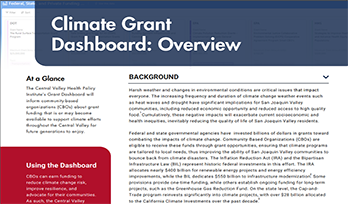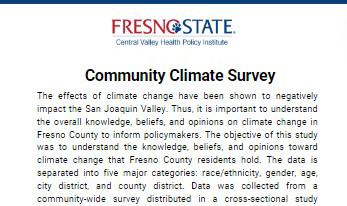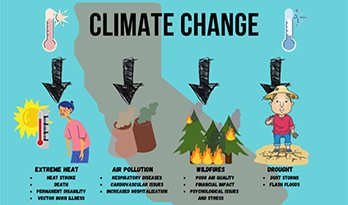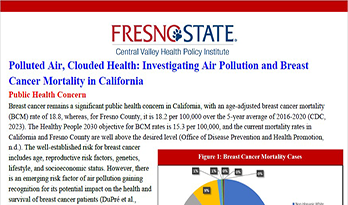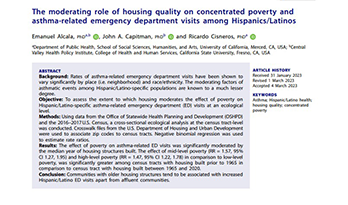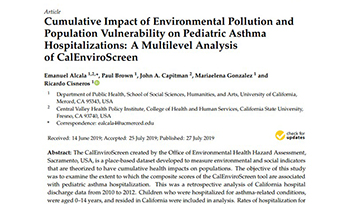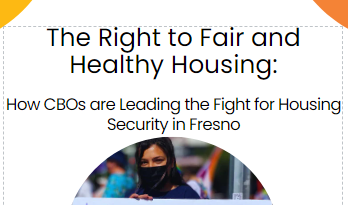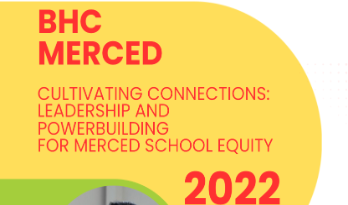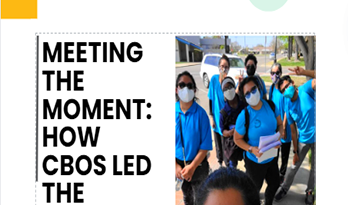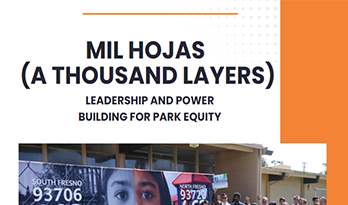Central Valley Health Policy Institute
Social Policy & Analysis
Highlights & Features
Central Valley Health Policy Institute created a health indicators dashboard to highlight the health characteristics of the given populations of eight counties.
Please review our climate work in the San Joaquin Valley. We aim to raise awareness about taking action to mitigate the effects of climate change.
November 2023: a four-part webinar series highlighting stories of building civic engagement from the ground up that has made lasting change in the Central Valley.
In addition to the work above, other projects include:
Social Determinants of Health and Health Outcomes in the San Joaquin Valley

Central Valley Health Policy Institute created a health indicators dashboard to highlight the health characteristics of the given populations of eight counties. The health indicators dashboard obtained quantitative metrics of various resources to capture relevant information of different attributes pertaining to demographics, education and quality access, social determinants of health, health outcomes, healthy behaviors, community health, and economic stability. California was used as a base comparison to highlight the health disparities, and health inequities.
Directions on how to use the Storyboard
Due to the large volume of metrics. There are multiple dashboards in the storyboard. When you click on the dataset and interact with the dashboard, it will provide a menu and the ability to click on the secondary research data sources. Sources are connected to the dashboards. In addition, highlights of the vulnerable census tracts or county are provided in the storyboard. These health indicator impacts and health disparities narratives highlight the importance of the most impacted vulnerable populations.
Please contact Central Valley Health Policy Institute and email one of our staff if you have any questions.
Climate Change Work

The San Joaquin Valley (SJV), located in central California, known for its rich agricultural
history, faces significant challenges due to climate change. The effects on this region
are becoming more pronounced, with rising temperatures, prolonged droughts, and increased
air pollution impacting both the environment and the health of the community.
According to the Climate Change in the San Joaquin Valley Report, community members in the SJV are primarily concerned with climate change matters
involving water quality, water supply, flooding, economy, and air quality. As we collaborate
with communities to learn of their concerns and improve climate change policy, CVHPI
with our climate work we aims to raise awareness about the importance of taking action
to mitigate the effects of climate change to move towards a healthier, more sustainable
future for the San Joaquin Valley and beyond.
A Decade of Power Building
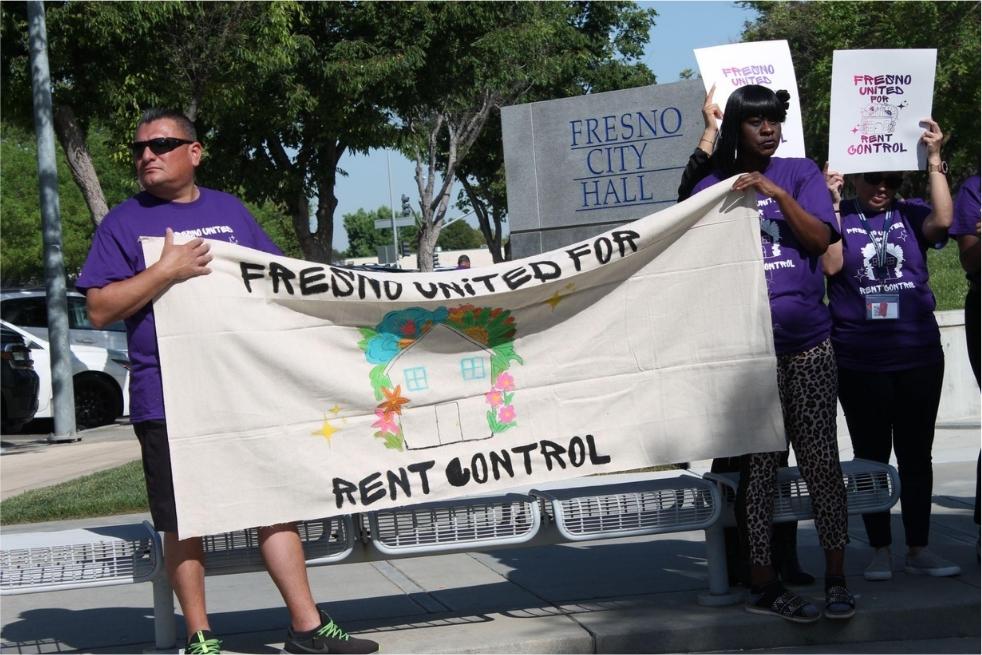
The four-part webinar series A Decade of Power Building, held throughout November 2023. This series is focused on the work of Fresno Building Healthy Communities and Building Healthy Communities Merced, both of which share a history as sites in the The California Endowment’s Building Healthy Communities Initiative. These webinars consist of four case study presentations that look at leadership development and power building leading up to and throughout the 2010-2020 place-based initiative, and how this work impacted leaders, built power, and even shaped the development of Fresno County’s pandemic response.
Please see the tabs below for presentation dates, details and event information.
Central Valley Housing Data Repository
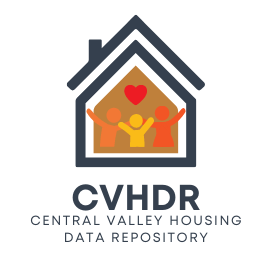
Housing is related to many other social issues facing our Central Valley region. In 2017, Fresno State hosted a conference where community members working on housing prioritized the need for a place to find local data and a way to help them interpret it to help tell their stories and make change. If we can understand the pressure levers and solutions to housing issues, this will help us understand many other issues. For example: preterm birth focus groups revealed that people were most concerned with housing on many levels: from neighbors smoking around pregnant women, being afraid of complaining about health hazards to landlords, stress of rising costs, to neighborhood walkability.
The goal of the Central Valley Housing Data Repository is to build a centralized way to engage community that helps facilitate research and learning.
We do this through three strategies:
- Partner with Community Organizations engaged in Fair Housing Action
- Provide Active Learning Experiences for Students through Partnerships
- Draw on Repository for High-Impact Teaching Practices
This is a 5-year funded project with the support of Chan Zuckerberg Initiative with funding from The California Endowment.
Unequal Neighborhoods: Merced
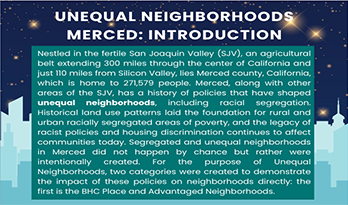
November 2024
Merced is ranked among the poorest in many regards, poor air quality, lack of employment, poor health, low education and poverty. Decades of policies and neglect have created these conditions, but not for all. While some neighborhoods experienced neglect, other neighborhoods had opportunities created for them through forward-thinking vision and policies.
Food Security and Health

May 2024
This study aimed to understand the geospatial association between food deserts, transportation,
and hypertension prevalence in California at the census tract level. Findings revealed
that communities in food deserts without adequate transportation were at a significantly
higher risk of hypertension, highlighting the importance of addressing both food access
and transportation infrastructure to mitigate hypertension prevalence.
Unequal Neighborhoods: Fresno
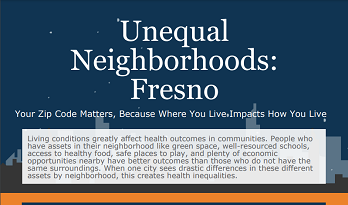
August 2018
While Fresno is ranked among the poorest in many regards, many have perceived this be the overall plagues of the city: low air quality, little green space, poor health, low education and poverty. Decades of policies and neglect have created these conditions, but not for all. While some neighborhoods experienced neglect, other neighborhoods had opportunities created for them through forward-thinking vision and policies.


